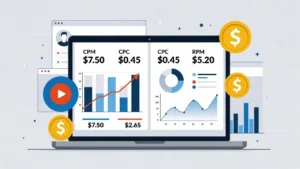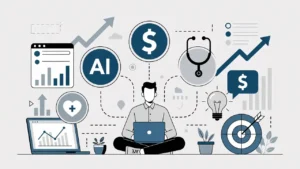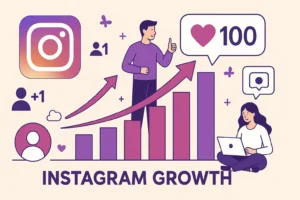Artificial intelligence (AI) has rapidly become a part of our everyday life, altering how we interact with technology and the environment around us. AI is transforming the way we work, play, and live, from virtual assistants to self-driving automobiles. On this post, we’ll look at the influence of AI in our daily lives and how it could change our future.
Artificial Intelligence in Communication
Communication is one of the most major consequences of AI on our daily life. We can now communicate with technology in a more natural and intuitive manner. Thanks to the introduction of virtual assistants such as Siri and Alexa. These assistants can interpret and respond to voice instructions, allowing us to complete a variety of activities without ever touching a gadget. Furthermore, AI is altering the way we engage with one another via instant messaging and social media platforms. These systems can now automatically translate communications in real-time using natural language processing (NLP) algorithms, breaking down language boundaries and connecting individuals from all over the world.
Artificial Intelligence in the Workplace
AI is also transforming the way we work, with several sectors implementing AI into their day-to-day operations. For example, in the banking industry, AI is being used to analyse massive volumes of data, assisting in the identification of patterns and making forecasts that would be hard for people to accomplish manually. AI is being utilised in the healthcare industry to detect illnesses and design individualised treatment strategies, increasing patient outcomes and lowering the chance of human mistake. AI has the ability to greatly increase business productivity and efficiency by automating regular operations and freeing up time for more complicated and creative jobs.
Artificial Intelligence and Job Automation
However, as technology continues to supplant human work, AI poses a danger to specific occupations. While some experts believe that artificial intelligence will offer new employment and possibilities, it is equally vital to evaluate the influence on jobs that may become obsolete in the near future. It is very crucial that we begin preparing for this transformation as soon as possible, ensuring that workers are trained in the skills required to fit in an AI-driven society.
The Advantages of AI in the Workplace
On the other side, AI may provide many benefits to the workplace, such as enhanced efficiency, productivity, and cost savings. Organizations may free up time for more creative and strategic work by automating mundane processes, resulting in better decision-making and overall corporate success. Furthermore, AI can assist businesses in swiftly analysing massive volumes of data, resulting in more informed and accurate decision-making.
Artificial Intelligence in Our Daily Lives
AI is also influencing how we live, with smart home gadgets and wearable technology becoming more widespread. For example, smart home gadgets such as Google Home and Amazon Echo enable us to control our houses with voice commands, altering the temperature, lighting, and even purchasing groceries with a few easy instructions. Smartwatches and fitness trackers enable us to track our health and fitness objectives, giving us with useful insights into our overall wellness.
The Potential of AI in Healthcare
AI is being utilised in the healthcare industry to discover novel treatments and medications, which is helping to improve patient outcomes and accelerate the development of life-saving cures. AI can also help doctors uncover possible health hazards and build individualised treatment regimens by analysing massive volumes of patient data.
Artificial Intelligence’s Ethical Implications
As artificial intelligence becomes increasingly pervasive in our daily lives, it is critical to evaluate the ethical implications of this technology. For example, how can we ensure that artificial intelligence is employed for good rather than evil? What are the ramifications for privacy of having AI-powered gadgets in our homes and workplaces? These are just a few of the issues that must be addressed as we traverse the quickly changing AI ecosystem.
Artificial intelligence is changing the way we live, work, and communicate, and its effect will expand more in the coming years. As artificial intelligence becomes increasingly common in our daily lives, it is critical to understand both the benefits and difficulties of this new technology, and to ensure that it is utilised for good.
FAQs
What exactly is artificial intelligence (AI)?
Artificial intelligence is a branch of computer science that focuses on developing machines capable of activities that would ordinarily require human intellect, such as learning, problem solving, and pattern recognition.
What impact does artificial intelligence have on our daily lives?
AI is affecting our daily lives in a variety of ways, including making them more comfortable and efficient, enhancing our health, and changing the way we work and communicate.
What are the advantages of AI in our everyday lives?
The potential to automate mundane jobs, making our lives easier and more efficient, and increasing our health and well-being are some of the benefits of AI in our daily lives.
What are the difficulties that AI poses in our daily lives?
Some of the difficulties we face in our daily lives as a result of AI include the possibility of job displacement, perpetuating discrimination along with ethical and privacy concerns.





